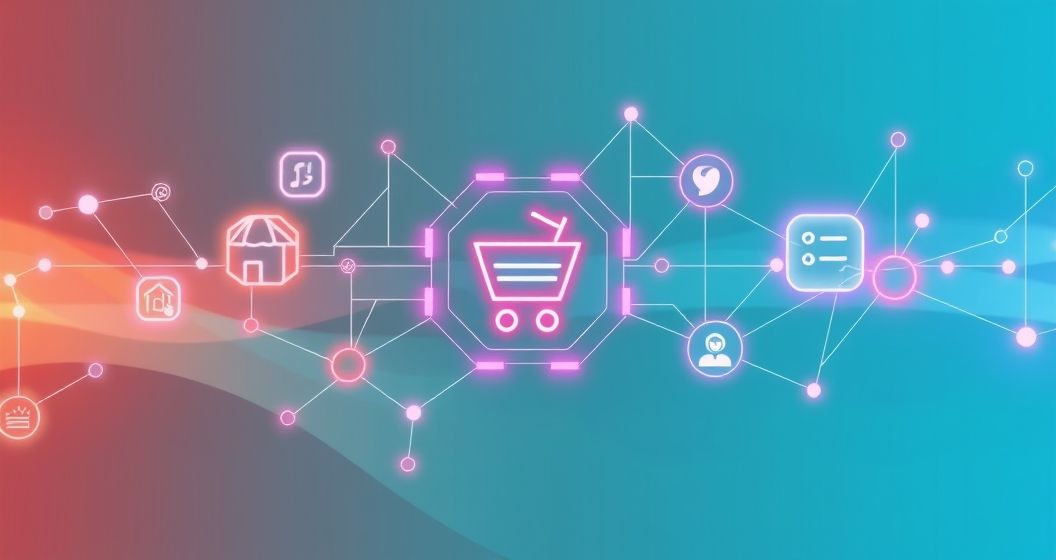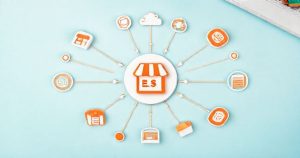In the vibrant ecosystem of online marketplaces, Etsy stands out as a unique platform for artisans, crafters, and vintage sellers. To truly thrive and scale a business on Etsy, sellers often look beyond the basic platform functionalities. This is where Etsy integrations become indispensable, offering a pathway to automate tasks, streamline workflows, and enhance overall operational efficiency. Understanding and leveraging these integrations can transform a burgeoning craft hobby into a professionally managed enterprise, unlocking significant growth potential for dedicated sellers.
Understanding Etsy Integrations: A Foundational Overview
Etsy integrations refer to the process of connecting your Etsy shop with third-party software applications or platforms. These connections enable seamless data exchange and automation across various business functions. Instead of manually performing repetitive tasks like order fulfillment, inventory updates, or financial reporting, integrations allow different systems to communicate, saving valuable time and reducing the potential for human error. This interconnected approach is fundamental for managing a scalable and efficient online business.
Key Areas Where Etsy Integrations Drive Value
Streamlining Shipping and Order Fulfillment
Efficient shipping and order fulfillment are cornerstones of a successful Etsy business, directly impacting customer satisfaction. Integrations with shipping solutions allow sellers to automate label creation, compare carrier rates, and track packages seamlessly. This reduces manual data entry, minimizes errors, and speeds up the entire dispatch process, ensuring timely deliveries and a professional customer experience.
These specialized tools can often automatically import new orders from Etsy, generate shipping labels, and even send tracking notifications to customers. Some platforms offer discounted shipping rates, which can significantly reduce operational costs, particularly for businesses with high order volumes. This level of automation frees up sellers to focus more on product creation and marketing initiatives.
Centralized Inventory Management Across Platforms
For sellers operating on multiple e-commerce channels beyond Etsy, managing inventory effectively is a critical challenge. Inventory management integrations provide a centralized hub to track stock levels across all sales points. This prevents overselling and ensures that product availability is accurately reflected, avoiding potential customer disappointment and order cancellations.
These robust systems automatically update inventory counts whenever a sale occurs on Etsy or any other connected platform. This synchronization capability is crucial for maintaining accurate stock data and optimizing purchasing decisions. By consolidating inventory data, businesses gain a clearer overview of their most popular items and can proactively manage their supply chain.
Automating Financial Tracking and Bookkeeping
Keeping accurate financial records is essential for any business, especially for tax purposes and strategic planning. Etsy integrations with accounting software can automate the transfer of sales data, expenses, and other financial transactions. This eliminates the need for manual data input, reducing the risk of errors and saving considerable time during bookkeeping and tax preparation periods.
These integrations provide real-time insights into a business’s financial health, making it easier to monitor profitability, track cash flow, and identify areas for improvement. Sellers can categorize transactions, generate detailed reports, and collaborate with accountants more efficiently. This foundational financial clarity is invaluable for making informed decisions about pricing, investments, and overall business strategy.
Enhancing Customer Relationship Management and Marketing
Building strong customer relationships is vital for repeat business and brand loyalty on Etsy. Integrations with Customer Relationship Management (CRM) and email marketing platforms enable sellers to manage customer data, segment audiences, and execute targeted marketing campaigns. This personalized approach can significantly boost customer engagement and drive sales.
By connecting Etsy with marketing tools, sellers can automate welcome emails, send personalized offers, and gather feedback more effectively. These integrations help nurture customer loyalty by maintaining consistent communication and understanding purchasing behaviors. Effective CRM allows businesses to transform one-time buyers into loyal advocates, fostering sustainable growth.
Optimizing Print-on-Demand and Dropshipping Operations
For sellers specializing in print-on-demand (POD) or dropshipping models, integrations are the backbone of their operations. Connecting Etsy with POD or dropshipping suppliers automates the entire order fulfillment process, from design submission to production and shipping. This allows sellers to offer a wide range of products without managing physical inventory.
These integrations ensure that once a customer places an order on Etsy, it is automatically routed to the supplier for production and shipping. This hands-off approach minimizes operational overhead and allows sellers to focus on design, marketing, and customer service. The seamless flow of information between Etsy and the supplier is critical for maintaining efficiency and timely delivery.
Multi-Channel Sales Platform Synchronization
Many Etsy sellers expand their reach by selling on additional platforms like Shopify, WooCommerce, or their own website. Integrating Etsy with these other sales channels creates a unified ecosystem for product listings, orders, and customer data. This synchronization prevents discrepancies and ensures a consistent brand presence across all touchpoints.
These integrations enable sellers to manage products, pricing, and descriptions from a single dashboard, propagating updates across all connected platforms automatically. This not only saves immense time but also reduces the likelihood of errors when managing a diverse online presence. A unified multi-channel strategy maximizes exposure and sales potential without duplicating effort.
Leveraging Data Analytics for Business Growth
Understanding sales trends, customer behavior, and marketing performance is crucial for making data-driven decisions. Integrating Etsy with analytics and reporting tools provides sellers with deeper insights than basic Etsy reports. These tools can consolidate data from various sources, offering a comprehensive view of business performance.
With advanced analytics, sellers can identify their best-selling products, understand peak sales periods, and evaluate the effectiveness of their marketing efforts. This data empowers them to refine their strategies, optimize product offerings, and allocate resources more efficiently. Gaining actionable insights from sales data is a powerful way to accelerate business growth and adaptability in a competitive market.
Strategic Growth: The Future of Etsy Selling Through Integration
Embracing Etsy integrations is no longer a luxury but a strategic necessity for sellers aiming for sustainable growth and efficiency. By thoughtfully connecting various aspects of their business—from shipping and inventory to finance and customer relations—sellers can automate mundane tasks, reduce errors, and free up invaluable time. This allows them to concentrate on creativity, product development, and building meaningful connections with their customers. The future of successful Etsy selling lies in a well-integrated and optimized operational framework, enabling businesses to scale intelligently and thrive in the ever-evolving e-commerce landscape.





